MercoPress. South Atlantic News Agency
Tag: avian influenza
-
Tuesday, August 29th 2023 - 09:00 UTC
Three more sea lions confirmed to have died of bird flu

Argentina's National Agrifood Health and Quality Service (Senasa) Monday confirmed three more cases of avian influenza had been detected in sea lions along the country's Atlantic Ocean coast.
-
Sunday, August 27th 2023 - 14:17 UTC
Mar del Plata breakwater closed due to sea lions dying of bird flu

Coast Guard and port authorities in the Argentine beach resort of Mar del Plata Saturday closed the South breakwater after the National Service of Agrifood Health and Quality (Senasa) confirmed two cases of the Highly Pathogenic Avian Influenza (HPAI) H5 in sea lions in the area where 4 dead specimens were found.
-
Saturday, August 19th 2023 - 09:28 UTC
Bird flu emergency suspended in Uruguay
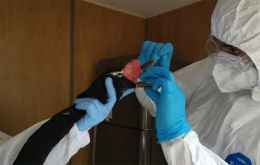
Uruguayan authorities Friday announced that the sanitary emergency decreed on Feb. 15 would be lifted for 60 days. Hence, the traditional Expo Prado fair starting in Montevideo on Sept. 8 will feature a poultry show, it was reported.
-
Friday, June 16th 2023 - 09:28 UTC
Paraguay: nationwide avian influenza emergency declared
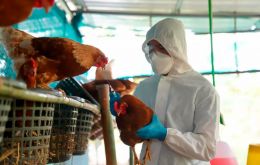
Paraguayan authorities Thursday decreed a nationwide animal sanitary emergency due to the spread of the highly pathogenic avian influenza virus, thus triggering the National Animal Health Emergency System (Sinaesa), it was announced in Asunción.
-
Monday, May 22nd 2023 - 09:04 UTC
Paraguay confirms 3 outbreaks of bird flu; could be more
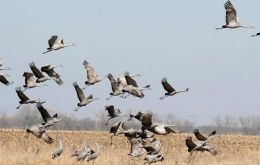
According to Paraguay's National Animal Health and Quality Service (Senacsa) President Dr. José Carlos Martin, there were already three confirmed outbreaks of avian influenza in the South American country's Chaco region by Sunday, while two others were still under investigation.
-
Saturday, March 25th 2023 - 10:36 UTC
Falklands, no confirmed cases of avian influenza in wild or domestic birds

The Veterinary Department can confirm that, following a major implementation of enhanced bio-security across the Islands, there have, to date, been no confirmed cases of avian influenza (bird flu) in the Falkland Islands wild or domestic birds.
-
Wednesday, March 1st 2023 - 10:25 UTC
Argentina halts poultry exports after case of avian flu confirmed
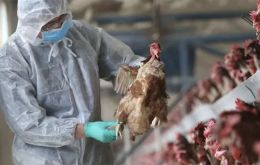
Argentine authorities Tuesday suspended poultry exports after the first case of avian flu was confirmed in the province of Río Negro. The South American country's poultry exports last year amounted to US$ 383 million, with China buying 75% of them. With 2.5 million tons of poultry meat produced annually, 10% are sold abroad.
-
Tuesday, February 21st 2023 - 10:05 UTC
Argentina ups security measures as number of avian flu cases grows
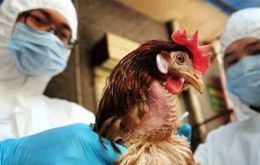
Argentina's health authorities have decided to up their biosecurity measures following the increase in the number of avian flu cases detected nationwide, particularly in provinces bordering Uruguay, but also in Córdoba and Salta.
-
Thursday, February 16th 2023 - 11:43 UTC
One detection prompts declaration of avian flu emergency in Uruguay
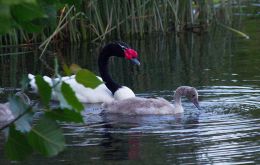
Uruguay declared a sanitary emergency nationwide Wednesday following the detection of bird flu in a black-necked swan in the department (province) of Maldonado, some 180 kilometers from the border with Brazil.
-
Thursday, February 16th 2023 - 11:31 UTC
Bird flu reaches northern Argentina

Argentine authorities have declared a state of emergency after the first case of avian influenza was confirmed in wild birds in the northern province of Jujuy bordering Bolivia.
